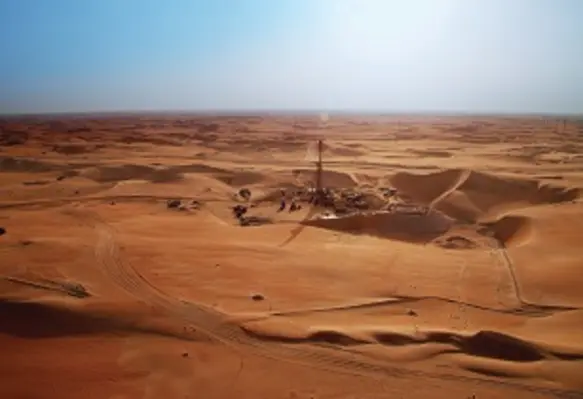ADNOC announced at Abu Dhabi Sustainability Week (ADSW) that it has begun work on the world’s first fully sequestered carbon dioxide injection well in a carbonate saline aquifer
The project, which is expected to begin injecting CO2 in Q2 2023, marks another important step in ADNOC’s commitment to decarbonise its operations, reduce its carbon intensity by 25% by 2030 and deliver on its Net Zero by 2050 ambition.
Yaser Saeed Almazrouei, ADNOC Upstream executive director, said, “Carbon capture and storage will play an important role in reducing emissions and achieving global climate goals, and ADNOC is building on its leadership position in this area as we continue to drive decarbonisation across our operations. At Al Reyadah, ADNOC deployed the region’s first carbon capture project at scale and we are taking another tangible step to deliver on our US$15bn decarbonisation action plan with the world’s first fully sequestered CO2 injection well.
“We will continue working to make today’s energy cleaner while investing in the clean energies and technologies of tomorrow to future-proof our business. In doing so, we will enable a lower-carbon future and remain a reliable and responsible energy provider to customers and markets around the world.”
This innovative project will support ADNOC’s carbon capture and storage programme, which is part of the suite of new projects and initiatives the company is advancing following the guidance by ADNOC’s board of directors to accelerate delivery of its low-carbon growth strategy, and the allocation of US$15bn to decarbonise its operations. Once operational, the project will initially fully sequester a minimum of 18,000 tons per annum of CO2 captured from Fertiglobe’s UAE operations for injection in Abu Dhabi’s onshore carbonate aquifers.
The project will contribute to the production of lower-carbon ammonia, an effective and cost competitive hydrogen carrier that can be scaled up quickly and has lower-carbon intensity than other fuels. It will also be monitored and assessed, using advanced technology at ADNOC’s Thamama Digital Centre of Excellence, to ensure the highest levels of environmental safety as the company expands its carbon capture activities to capture 5mn tonnes per annum by 2030.










